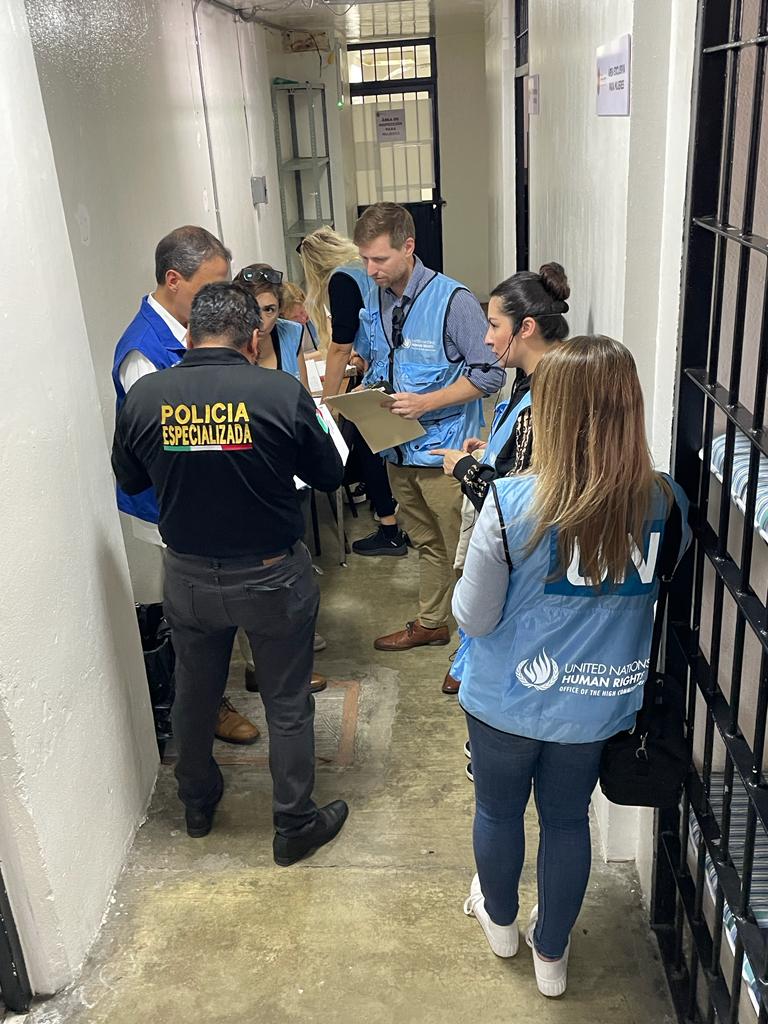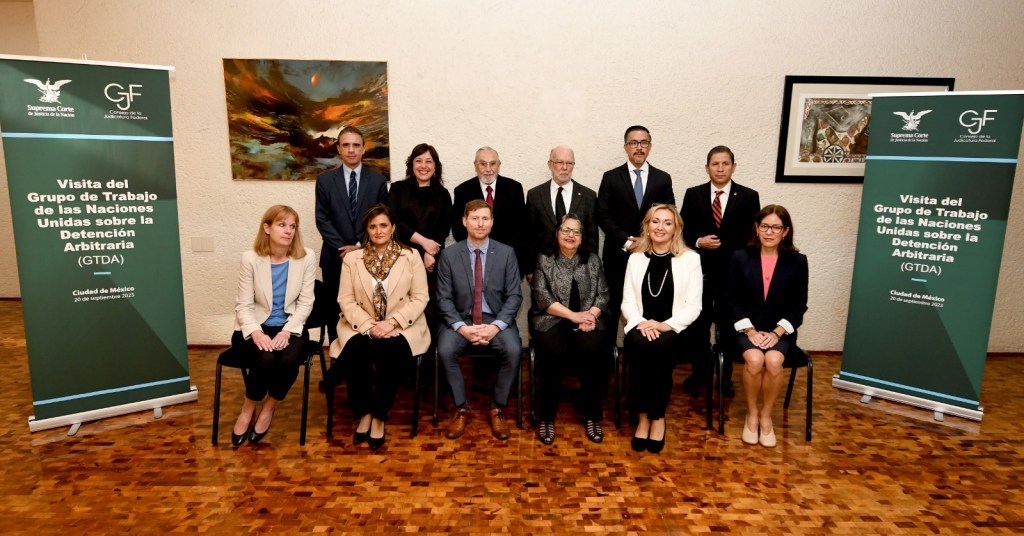
Dr. Matthew Gillett, the Vice-Chair of UN Working Group on Arbitrary Detention and Essex Law School academic, spearheaded a high level delegation on a recent mission to Mexico. His team visited multiple sites across Mexico City, Nuevo León, and Chiapas over 11 days.
Their mission included interviews with detainees and assessments of police stations, migration detention centres, sanctuaries of vulnerable children, mental health institutions and the very corridors of prosecutors’ offices. The delegation also met with significant figures, including President Norma Lucía Piña Hernández of the Supreme Court, and offered key recommendations to the Mexican government.

The Essex Law School Research Visibility Team had the opportunity to interview Dr. Gillett about his recent trip, the different layers of the UN project and their impact:
Dr. Gillett, what inspired or motivated you to focus on arbitrary detentions, and how did the idea to visit Mexico specifically come about?
Having worked in criminal justice for 20 years, I have increasingly seen that the moment of detention is a critical point in the application of the law. If the State power to detain is misused, then it can violate a person’s right to liberty and can also lead to other violations including enforced disappearance, torture, and even extra-judicial killings. I’ve worked on detention related matters in New Zealand, Afghanistan, Mongolia and several other countries.
But this latest mission to Mexico came about through the United Nations Working Group on Arbitrary Detention, of which I am the Vice-Chair. We considered Mexico an important country to assess, because of its large and diverse population, and its major issues with migrant-related detention at the moment.
Were there any moments or encounters during your trip that deeply impacted or surprised you?
There were many moments during the mission to Mexico that were deeply affecting. Seeing detainees with open wounds, sometimes sleeping on concrete floors in over-crowded cells, was shocking. But also learning of the challenges that Mexico faces, including the hundreds of thousands of migrants passing through its territory, brought home the complexity of the situation.
While observing the situation in Mexico, what progress stood out to you, and conversely, what challenges deeply concerned you?
Mexico’s progress in terms of placing human rights at the centre of its constitution and establishing a National Registry of Detentions were important steps forward. Prison officials were largely professional and not using violence against detainees in a systematic way from what we discerned.
However, significant challenges remain, particularly in terms of the use of violence by security forces conducting arrests out on the streets, and the imposition of mandatory pre-trial detention, as well as shortages in staff and resources at prisons which lead to many detainees being kept in their cells the vast majority of the time without access to proper sunlight and fresh air.
What are the key recommendations you’d like to emphasise from the UN Working Group, and how have the responses from the Mexican authorities and international community felt to you?
We would strongly recommend increasing the scope of the National Registry of Detentions to cover all deprivations of liberty, including administrative detentions of migrants for example. We would also emphasise the need to remove mandatory pre-trial detention and ensure that individualised assessments are carried out to verify that persons detained before trial are either a flight risk, or risk of tampering with evidence or serious re-offending. The Working Group and the Inter-American Court of Human Rights have both called for this change in their judgments.
During the visit, we sensed an openness on the part of the Mexican authorities to take up our recommendations. At the same time, we urged them not to wait for our full report, which we will deliver to the United Nations Human Rights Council in September 2024, to start implementing changes.
On a personal note, how has this trip impacted your views on human rights and arbitrary detention globally? What message would you want to convey to international readers regarding the situation in Mexico and the efforts of the UN Working Group?
There are two points which I take away from the Mexico mission.
One is the importance of investigating at multiple levels in order to get a holistic view of the situation. We spoke to over 170 detainees, as well as officials at the federal, state and local levels, and many NGO and civil society actors. The communications are critical to understand the depth and breadth of human rights challenges, but also to provide focused recommendations which are feasible and impactful.
The second is that the wheels of justice must speed up! People should not be left for years, languishing in detention, before they have a trial. It’s a global problem that requires a concerted effort on the part of governments and the judiciary. They must ensure that everyone charged with a crime enjoys their right to trial without undue delay.